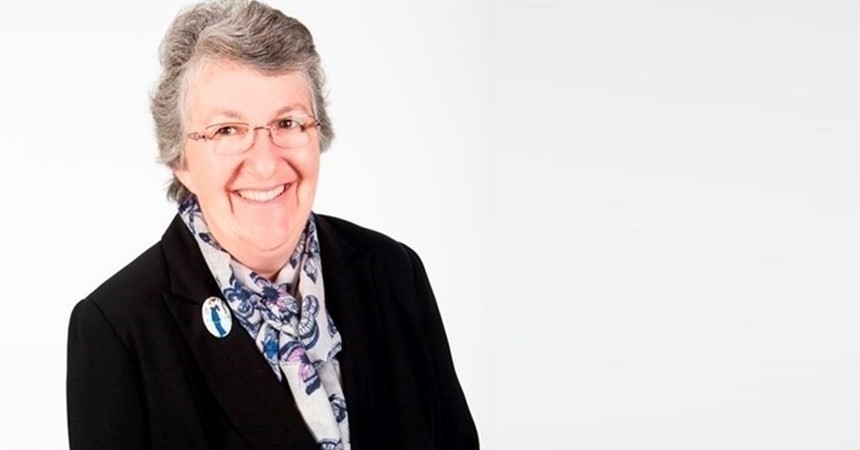I have just returned home from Sunday Mass which was followed by Evensong, the Anglican service of prayers, psalms, and canticles, prayed at the end of the day. It was celebrated in our Cathedral because of the Supercars, which made it difficult for those who attend Evensong, to access Christ Church Cathedral.
Subsequently, I am finding it hard to find the energy to write this message, because the Service seems to have left me in a state of calm and weariness, or perhaps said differently, in a state of peace and tranquillity. The Collect for Peace prayed as part of this Service seems to say it all: 
O God, from whom all holy desires, all good counsels, and all just works do proceed: Give unto thy servants that peace which the world cannot give; that both our hearts may be set to obey thy commandments, and also that by thee, we, being defended from the fear of our enemies, may pass our time in rest and quietness; through the merits of Jesus Christ our Saviour. Amen
It was good to be at prayer with our Anglican friends and to be reminded that this is what we should do at every opportunity which presents itself, so as to be reminded we are all Christians, followers or disciples of the same Jesus Christ, reading the same scriptures and reciting the same creed. This took me back to our Interfaith Forum of last Thursday night, when those from the Catholic, Anglican and Uniting Churches spoke with people from Judaism and Islam on the topic of Our Faiths and the Discernment Process.
These forums provide us with an opportunity to discover how much people of faith have in common, particularly when it comes to making decisions. Each faith tradition and Christian variant relies upon having a deep relationship with God, to prayer and to referring to their scriptures or writings. Discernment involves, for all people of faith, a desire to seek truth and wisdom. This seeking of truth, or spiritual insight, comes from looking deep within, a place we call the soul, sifting through or wrestling with the options, so that the choices between right and wrong, good and evil can be determined in a spirit of peace.
A question raised spoke of the concern for the formation of people’s consciences in the absence of faith, and its subsequent formation at the core of people’s being – their soul. This was really left as a question, because we are yet to discover what forms people in these post-modern times.
Many of the presenters spoke about the process for making group or collective decisions or discernment. The Anglican and Uniting Church speakers were very clear about the processes of Synod that they use for discernment. We, as Catholics, are growing in our understanding of communication, collaboration, consensus, and co-responsibility, while accepting the hierarchical nature of our church structures. And yet Pope Francis speaks boldly of our need to be a Synodal Church, a church of encounter, listening and dialogue. Fr Andrew Eaton, an Anglican priest who spoke, talked of a church which is episcopally led and synodally governed.
This brings me to The Solemnity of Our Lord Jesus Christ, King of the Universe, which we celebrated at Masses over the weekend. Unfortunately, we have adopted over many centuries an understanding of kingship as power over, of dominance and authority, with little in the way of responsibility and accountability. And yet when we unpack the readings for the weekend, they present us with a different version of deity and of serving. I remind you here of the reading from the Book of Daniel (7:13-14)
As the visions during the night continued, I saw 
one like a Son of man coming,
on the clouds of heaven;
when he reached the Ancient One
and was presented before him,
the one like a Son of man received dominion, glory, and kingship;
all peoples, nations, and languages serve him.
His dominion is an everlasting dominion
that shall not be taken away,
his kingship shall not be destroyed.
This kingship was about truth-seeking as we hear in the reading from John (18:33b – 37)
So Pilate said to him, "Then you are a king?"
Jesus answered, "You say I am a king.
For this I was born and for this I came into the world,
to testify to the truth.
Everyone who belongs to the truth listens to my voice."
And from the Book of Revelations (1:5-8)
“I am the Alpha and the Omega, " says the Lord God,
"the one who is and who was and who is to come, the almighty." 
I have no doubt, since Vatican II we have been grappling with what it really means to be a church which models servant leadership, or kingly service. At home Allen and I have been watching the series Victoria and in the most recent episode, Victoria who has recently given birth to her second child, is struggling to attend to her duties as both a mother and queen. Her Prime Minister attempts to encourage her to step out to be with her people who need her, particularly after an explosion which killed and injured a number of people. With great courage and trepidation, Victoria visits those wounded in hospital. Interestingly, in facing their grief and loss and her own despair, she begins to be healed as do the people of England. She was able to step out and step up and this was the leadership that was needed, and yet it also changed her.
Let us contemplate our own vocations which may involve leadership and what it means for us to be baptised/anointed as priest, prophet and king. I hope this helps to lead you into the Season of Advent.

